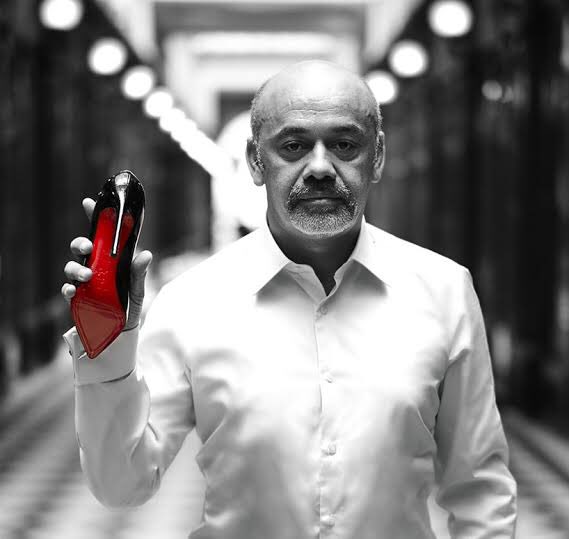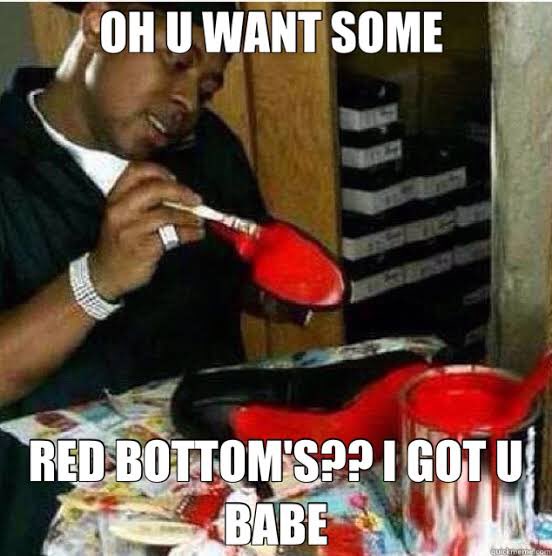Lets do a thread on the basics of IP and some key issues that usually come up. The first step is always to understand what is Intellectual Property.
IP consists of different types. And the first one I’ll chat about is trade marks. A Trade mark is a sign that you use to distinguish your business and those of others who sell similar goods/services in the market. Simple.
For example if I sell Mageu, but my mageu has a “special” ingredient, I’ll call it Sena Mageu, so the people know thats its coming from me. That is important for my business. Sena Mageu would be my trade mark and I can stop other people using that name once I register it.
Thats the importance of a trade mark, it acts as a badge of origin so customers know. But its not limited to just words, it’s anything you can represent graphically. (ie.logos, shapes, patterns etc). That is why you can’t choose descriptive or generic words as trade marks.
Think of it this way, if you are allowed to use descriptive words like “Sweet Mageu” or “Tasty Mageu”, that doesn’t inform the public who makes the Mageu. In fact, no one person can have a monopoly over descriptive terms. So if you try to register “SWEET MAGEU”it would be refused
Lets take a small detour, what happens if I decide to create a product, but the shape or colour is used is unique to me.....Say I make shoes with red bottoms? Can I register the colour and prevent anyone else from making red bottoms?

Most women know Christian Louboutin, he’s the french fashion designer who came up the idea to put red shoes on stilettos. No one else was doing it at the time, so he decided to register the colour red, on the bottom of shoes as a trade mark.
His trade mark has been rejected in many countries for one simple reason. No one should have a monopoly over a colour. And since he launched the shoe, he’s been in and out of courts fighting copy cats who make red bottoms.
So should he be allowed to have a trade mark over a colour? Based on your understanding of the function of a trade mark? Bear in mind that if he’s granted this right, no one else will be allowed to have red soles on their shoes.....
I personally think no one should be allowed to monopolize a colour. It goes against the principles of trade marks. Generic or descriptive items, shouldn’t be allowed monopolies.
Lets look at another scenario. Say I start selling “Paul Kaseke Miracle Water”. Over the years the water becomes so popular in churches that we start referring to ALL miracle water as “PASTOR PAUL MIRACLE WATER”? Ie. The trade mark is no longer distinctive as a trade mark....
People are now describing all water using my trade mark...what must happen in that scenario? Do I keep my trade marks or do I now lose it because it has become descriptive?

This process is called Genericide. Google is a recent example of when your mark becomes so famous, people start using it descriptively. Effectively killing the trade mark function. Other examples are Vaselime, Surf, Colgate. Check the thread below! https://twitter.com/senamisomoyo/status/1281185190392586240
Genericide is a cruel process. But it underlines how important it is for a trade mark to be distinctive and remain distinctive. That is the most important rule of trade mark law, your mark must be distinctive.
I know its tempting to choose descriptive words when choosing a product or business name. You want consumers to know what you do or what your product is all about. The downside of this is that you cant stop others using the same words, so choose unique elements!!
Lets move onto the next thing in a bit......Patents!!!
As an IP lawyer, Professor or even a student, we get a lot of calls/emaisl that go something along these lines....
“Hi X, I have an idea, its the best thing ever created. I’m telling you, its Unique! No one else is doing this and I want to protect it, Kind regards. Y”
Now most of the time, these ideas are good and brilliant, but offen they don’t qualify for protection as a Patent. So whats a Patent? A patent is a right given to a NEW invention.
There are 3 main requirements for an invention to qualify as a Patent. 1. It must be NEW or novel. That means its never been done before anywhere in the world!! 2. It must be inventive....
That means it must not be obvious to people in the same industry (just because it hasnt been done, doesnt mean it’s special or should qualify as a Patent.
The 3rd requirement is Utility. This means that it must have a technical function or in simple terms, it must be useful. So its important to make sure your idea ticks all 3 boxes to qualify as a Patent.
Once your Patent is registered, no one can make the same thing as you. Lets look at our next scenario and this one is relevant nowadays. What happens if I create something that the world requires, like a vaccine for a deadly virus as an example.
Well there is something in Patent Law called a Compulsory License. This is when a government can force the owner of a Patent to allow them to use their invention if it is in the public’s interest. Yes, if you creat something we need, we can force you to let us use it!
So, given that we are in the middle of a global pandemic, Big Pharma companies have created a vaccine and they have registered Patents for it, can we force them to allow us to reproduce it here in Africa?
Remember when Big Pharma invented ARVs and then they refused to let the SA gvt make them here or import from elsewhere. Patent owners always want a big return on their investments in the invention. But is that right important when lives are being lost? Love to hear your thoughts! https://twitter.com/senamisomoyo/status/1265939416851283968
So for the 3rd leg of our thread, lets take a look at the most problematic branch of IP Law. Copyright!
I say problematic because copyright laws are a bit of a mess, and unlike trademarks and patents, you cannot register a Copyright in most countries (you may do so in the USA).
So what is a Copyright? Its a right given to the owner of a creative work. The work can be a musical work, photo, sculpture, literary works and even videos. Once you make your work, the copyright vests in it automatically.
In order for a creative work to get Copyright Protection, it must be Original (not really new, but you must show that you “sweated” to come up with it. You must have worked!
The general rule is that the person who makes the work is the one who owns it. That is the general presumption and very often that is where our problems come from.
Lets go back to the story of Bob Marley. Marley as you know, recorded a series of 5 albums that contain some of his best songs. He had a deal with Island records (now Universal) that said that Island would pay him money upfront and he would record albums for them. https://twitter.com/senamisomoyo/status/1278629755923947520
Island would let him use their studio, they would market the music and more importantly, they could decide which songs should be left off the album. When Marley’s family wanted money for the songs later, the courts said it was up to Universal as they owned the songs.
The songs were deemed to be “Works for Hire”. So Marley didn’t own the songs, he was hired to by Universal to make the music.
These situations happen all the time where you create something and then your employer owns it. Lets look at a few scenarios. Sena works at a law firm and in his spare time, at home, he creates an app to order Whey protein online. Who owns it?
Sena creates the Whey Protein App in his spare time but with the law firm’s resources. Who owns the App?
Sena creates an App which keeps track on how long it takes for lawyers to finalise deals. He does this during his lunch hour at work. Who owns the App?
The answer to this will mostly be that it depends. Often your employment contract will address this, ie. Newspaper editors know that the company owns the IP in their articles.
If the contract is silent, then the court will ask a series of questions to see if the work would be possible without the Employer’s resources.
So the author of a work, is not always the owner.
So what happens when the author is not a human, say a computer or strangely enough an animal. Lets go back to the thread about a monkey selfie. https://twitter.com/senamisomoyo/status/1288776282285711360
A photographer (David Slater) set his camera up in the bush somewhere and a monkey decided to take a selfie of herself.
Now the general rule of IP is that only comes into being if it is created by a human being. But Slater claimed that since he set up his camera in a particular way, he should have been recognized as the author and owner.
The courts didnt agree with Slater. They said that the photo was taken by the monkey and couldn’t qualify for copyright protection. It thus belonged in the public works and anyone could use it.
I disagree with the decision and thats because Slater setup HIS camera so the monkey could take the selfie. He lost a lot of money because anyone could use it.
Time for the last leg of this looong thread! Copyright has to be expressed in material form for it to be valid. That means, your ideas are not protectable unless you express them in material form. But what if that material form is someone’s body?
You guys remember the story of Mike Tyson’s tattoo. Basically his tattoo artist claimed he owned the copyright in the tattoo on Mike’s face. https://twitter.com/senamisomoyo/status/1293859479268753408
This opens up a whole bunch of questions. Is it okay for someone to own the rights to something permanently inked on someone else. The concern here was that if the artist owns the rights, it could open doors for the artist to control the subject.
Think of this way, what if Mike wanted to sell his image rights or someone wanted to make different cartoons of Mike featuring his face? Would they need clearance from his artist to feature the tattoo?
Here’s another example. Lebron James was featured in a video game and his tattoo artist sued the game company for infringement. https://twitter.com/senamisomoyo/status/1337080361466081280
Maybe there should be an exception to the rule with regards to authorship/ownership. If its on someone’s body, then surely it belongs to them?  idk, lemme know what you guys think!
idk, lemme know what you guys think!
 idk, lemme know what you guys think!
idk, lemme know what you guys think!
I always get asked what’s the thread I’m most passionate about. And it’s this one on Henry Cele/ Shaka Zulu. It speaks so much on how our stars are exploited in Africa. Our biggest stars make millions for studios and die poor. https://twitter.com/senamisomoyo/status/1270995556316438529
Maybe coz I watch it every year, but its the ultimate example of how we don’t respect the arts in Africa. Yesterday @ramsayshonge asked hat we stop sending music on WhatsApp. We are complicit on robbing our stars and that has to change. Our approach to IP has to change!

 Read on Twitter
Read on Twitter



